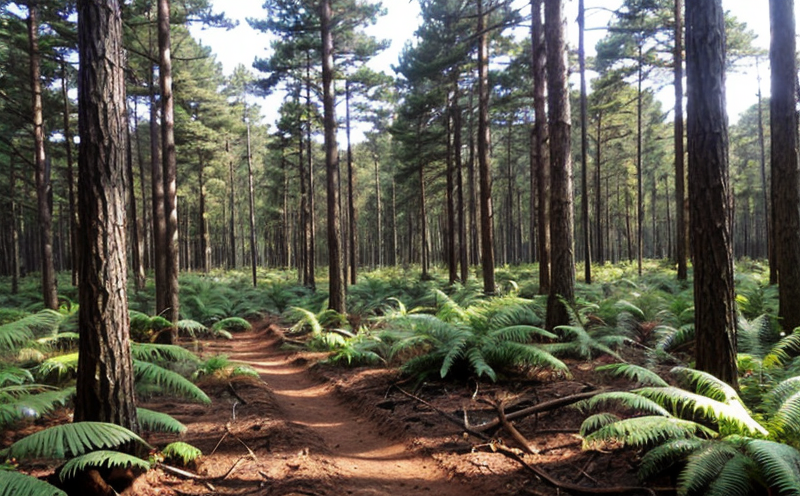Soil Carbon Sequestration Potential Assessment
The assessment of soil carbon sequestration potential is a critical component in understanding and managing the health of forest ecosystems. Soil carbon sequestration refers to the process by which carbon dioxide (CO₂) is captured from the atmosphere and stored within the soil organic matter, thereby reducing atmospheric CO₂ levels. This is one of the most effective natural solutions to mitigate climate change.
Forests play a pivotal role in this process, as they are major sinks for atmospheric CO₂, acting like giant carbon reservoirs. The health of these ecosystems directly impacts their ability to sequester and store carbon. Soil organic matter contains approximately two-thirds of the world’s terrestrial carbon pool, highlighting its importance.
Soil carbon sequestration potential assessment involves a series of steps that include soil sampling, laboratory analysis, and interpretation of results. The process is not only essential for understanding current soil health but also crucial in planning sustainable forestry practices. By accurately assessing this potential, land managers can implement strategies to enhance carbon storage and promote biodiversity.
Accurate measurement of soil organic matter content provides valuable insights into the ecosystem’s capacity to sequester carbon. This assessment is conducted using a combination of field techniques and laboratory analyses that comply with international standards such as ISO 17294:2015 for soil organic carbon determination by loss on ignition.
Our team at Eurolab uses advanced analytical methods like near-infrared spectroscopy (NIRS) to determine the composition of soil samples. This technology provides a non-destructive way to analyze soil without altering its physical or chemical properties, ensuring accurate and reliable results.
The process begins with selecting representative soil samples from different forested areas. These samples are then sent to our state-of-the-art laboratory for detailed analysis. The analytical methods used ensure precision and accuracy in quantifying the organic carbon content of soils. Understanding these parameters helps in identifying areas where intervention might enhance soil health.
Once the data is collected, it undergoes rigorous quality control checks to ensure reliability. Our team then interprets this information within the broader context of ecosystem function. This includes evaluating how changes in management practices could influence carbon sequestration rates. The ultimate goal is to provide actionable insights that support sustainable forest management strategies.
Understanding soil carbon dynamics is essential for addressing global challenges related to climate change. By assessing and enhancing soil carbon sequestration potential, we contribute to reducing greenhouse gas emissions while supporting long-term ecological sustainability.
Applied Standards
- ISO 17294:2015 - Soil organic carbon determination by loss on ignition
- EN ISO 21938 - Near-infrared spectroscopy (NIRS) for the analysis of plant and soil materials
Our laboratory adheres strictly to these international standards, ensuring that all assessments are conducted with precision and reliability. Compliance with such recognized guidelines ensures consistency in results across different geographical locations.
Eurolab Advantages
At Eurolab, we pride ourselves on offering comprehensive services tailored specifically to meet the needs of our clients in agriculture and forestry sectors. Our experienced team combines scientific expertise with practical knowledge, ensuring that every assessment is conducted efficiently and effectively.
We utilize cutting-edge technology and methodologies to provide accurate and reliable data, which is crucial for making informed decisions about forest soil management. Our commitment to quality does not end with the initial assessment; we also offer follow-up services to monitor changes over time.
The expertise of our team extends beyond just providing raw data. We work closely with clients to interpret results in ways that are relevant and actionable, helping them implement strategies that enhance both soil health and overall ecosystem resilience.
Environmental and Sustainability Contributions
Reduces greenhouse gas emissions by enhancing carbon storage in soils.
Promotes biodiversity through improved soil health, which supports diverse plant species.
Supports sustainable forestry practices that contribute to long-term environmental benefits.
Our services play a vital role in fostering environmentally responsible actions. By enhancing the capacity of forest soils to sequester carbon, we help mitigate climate change while promoting sustainable land use practices.





